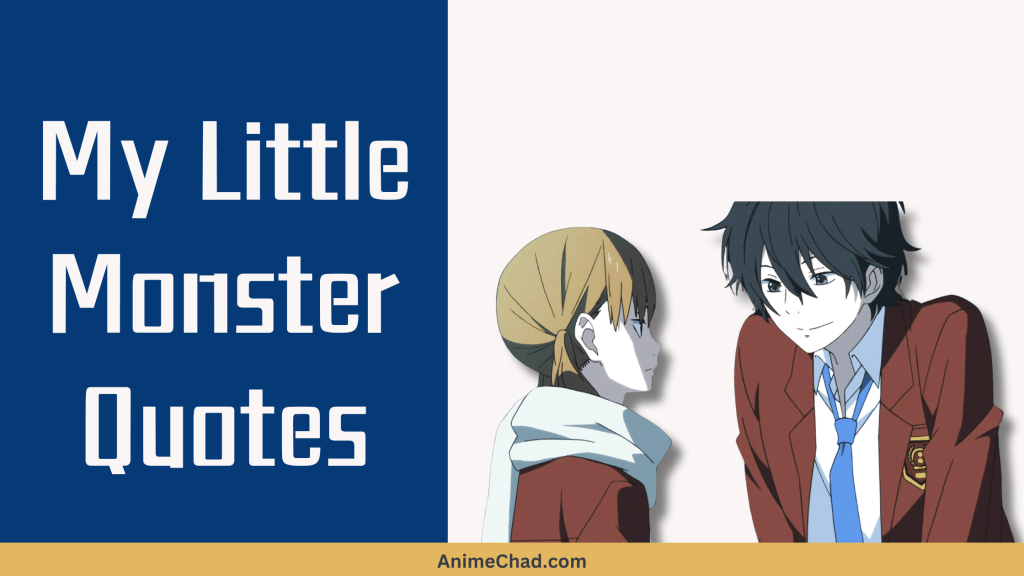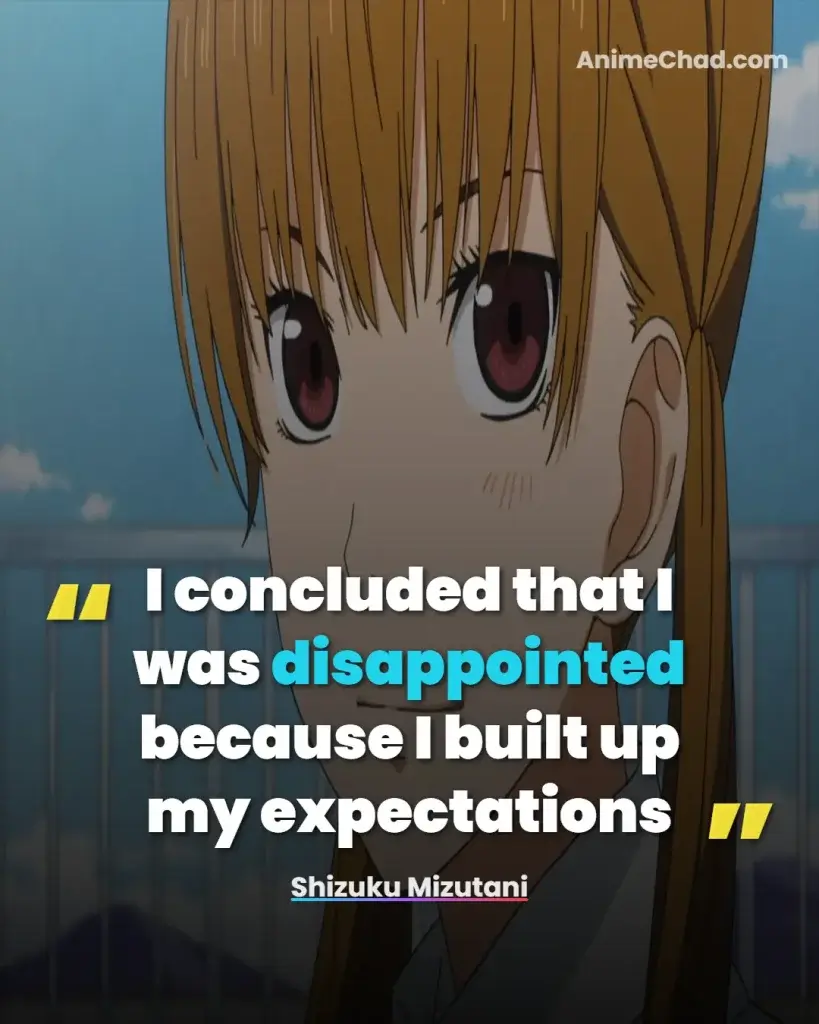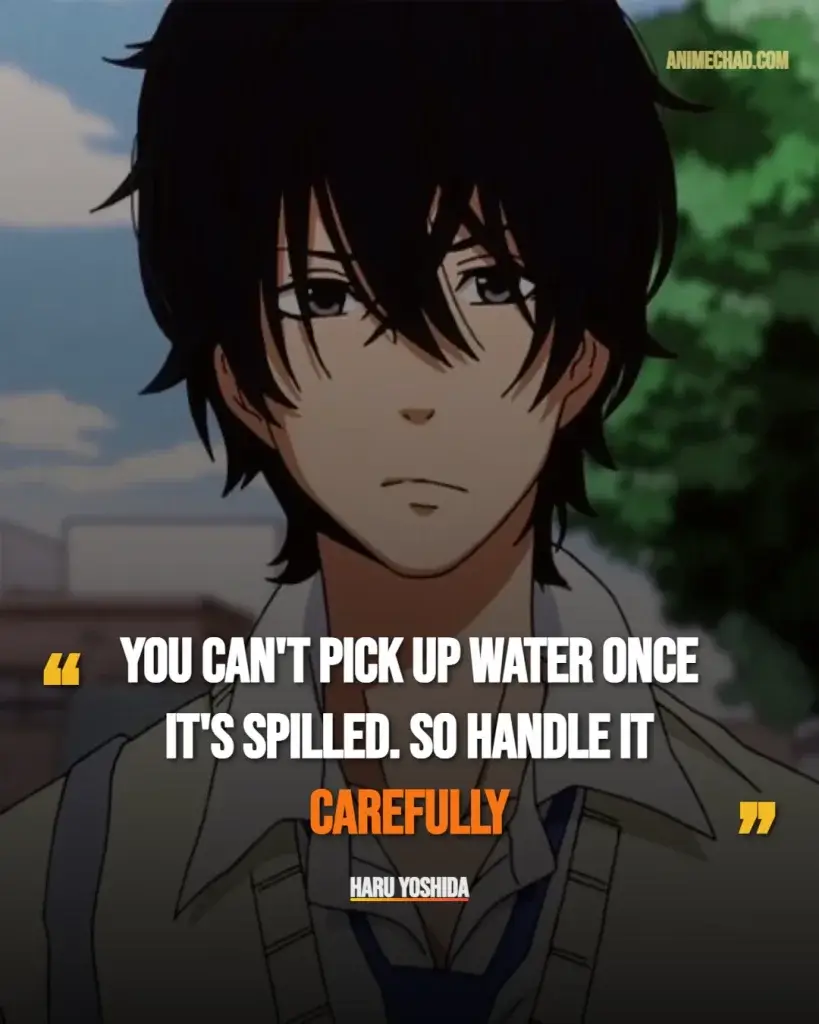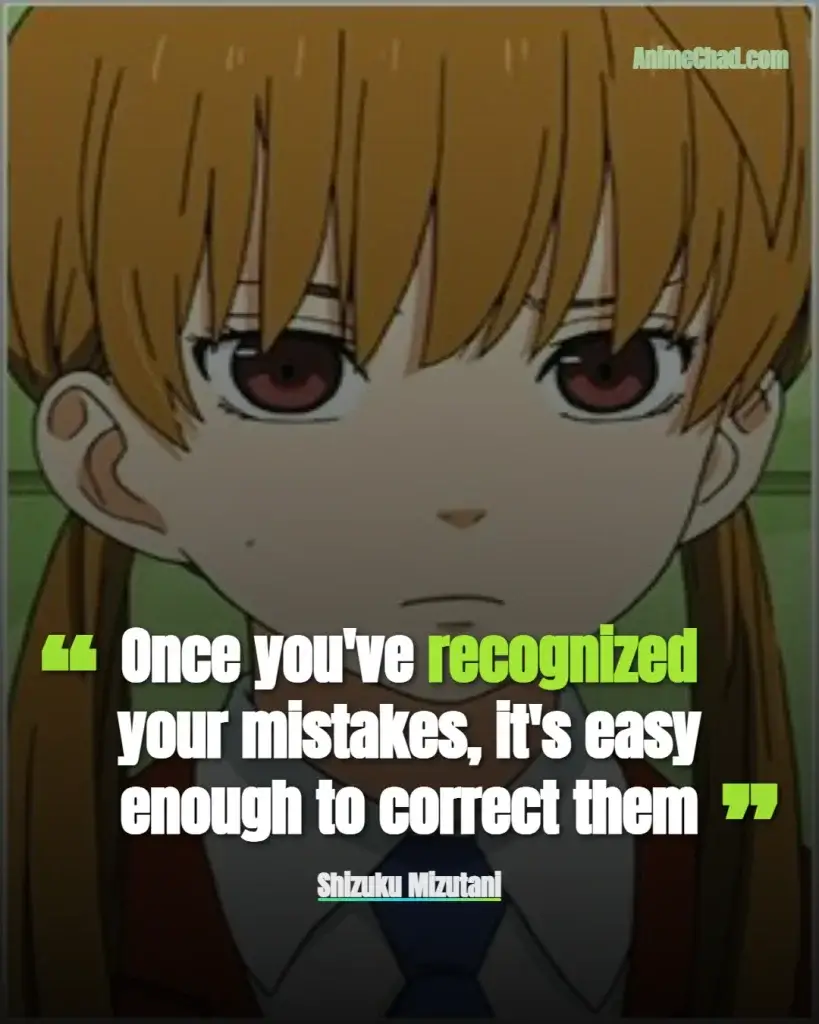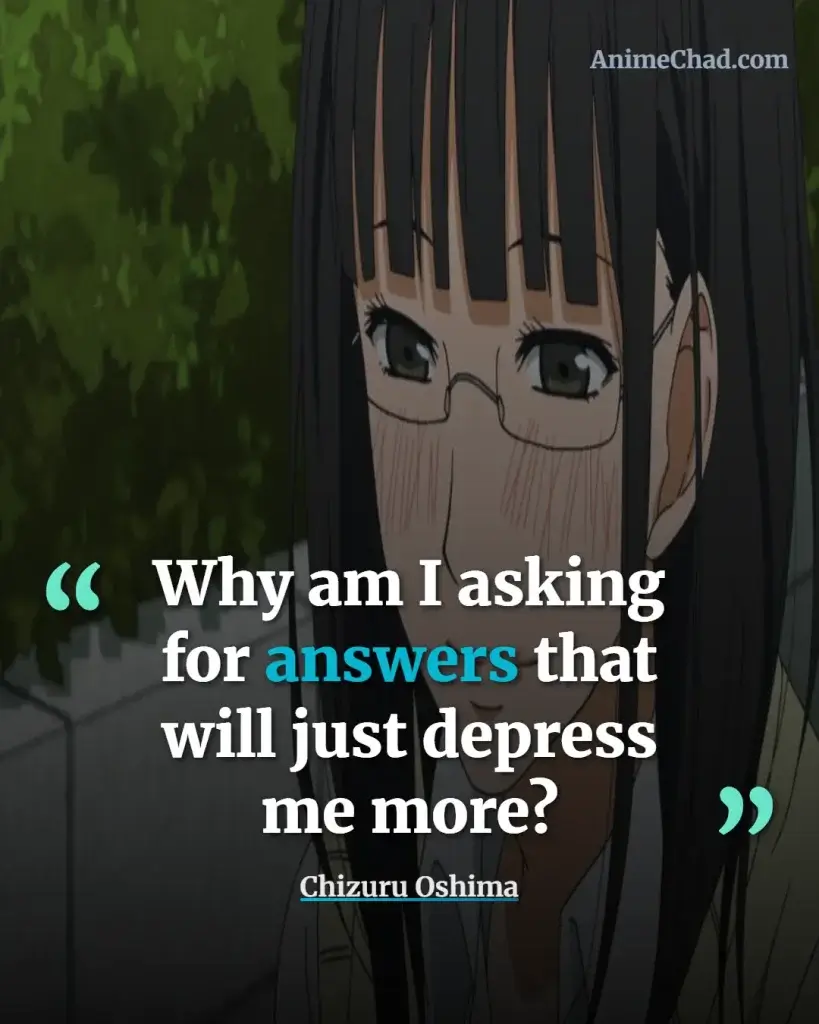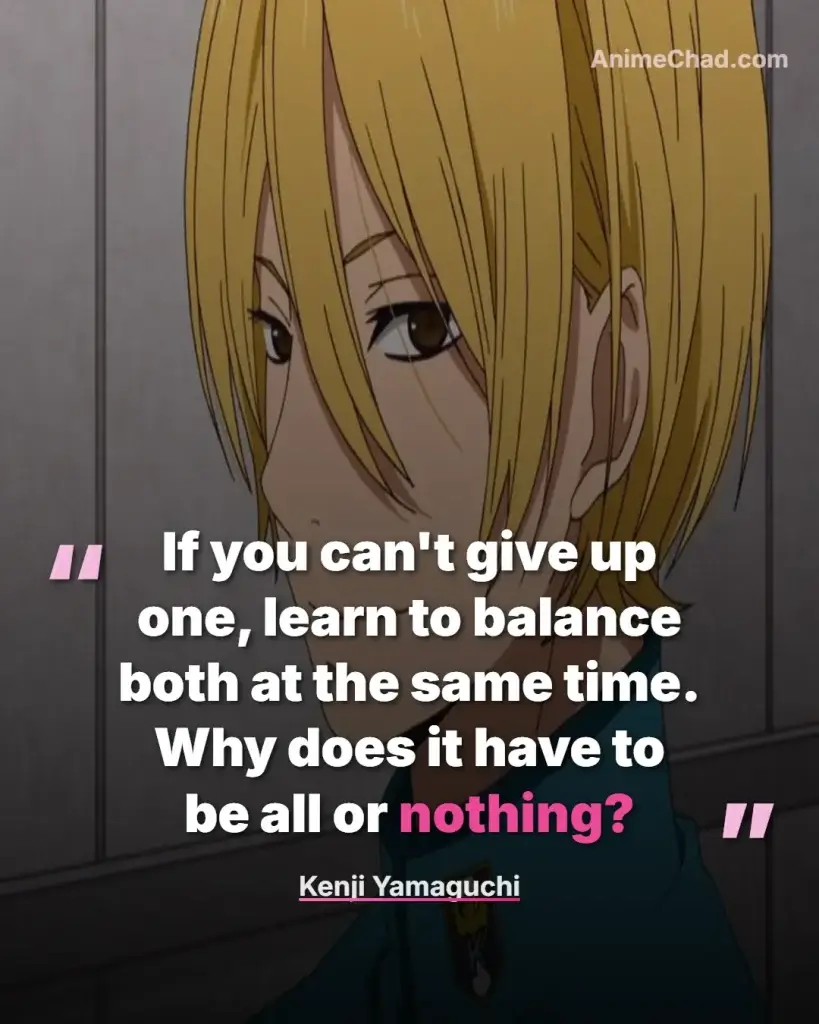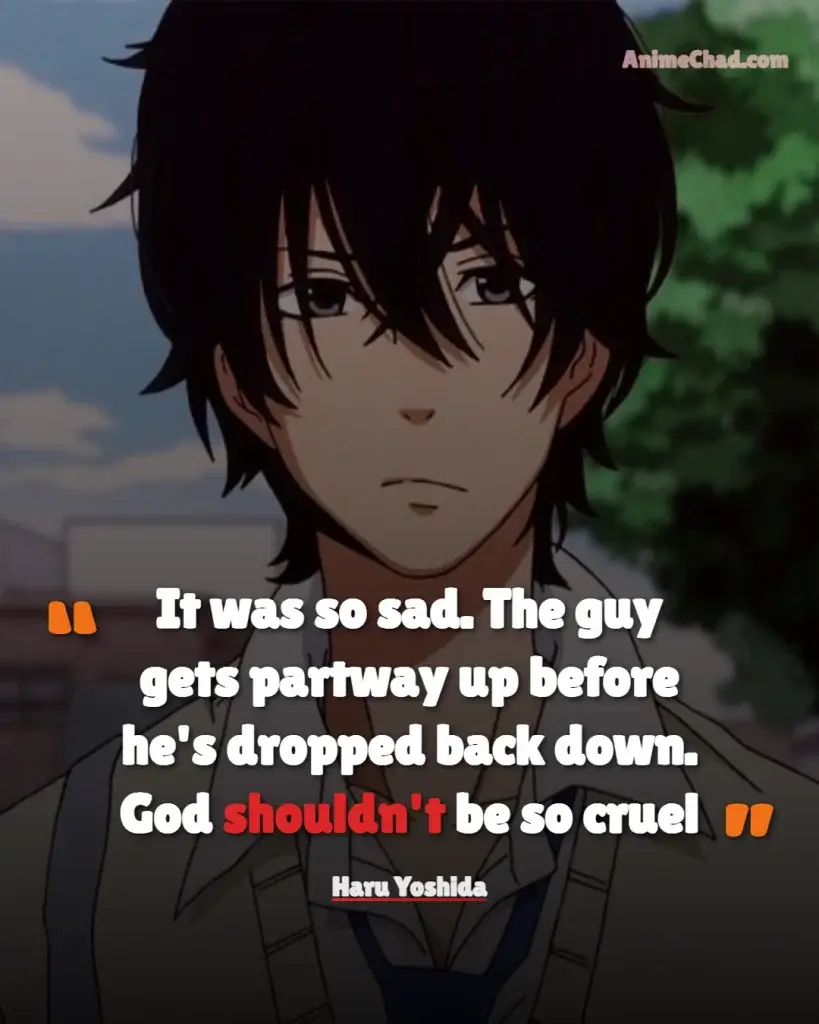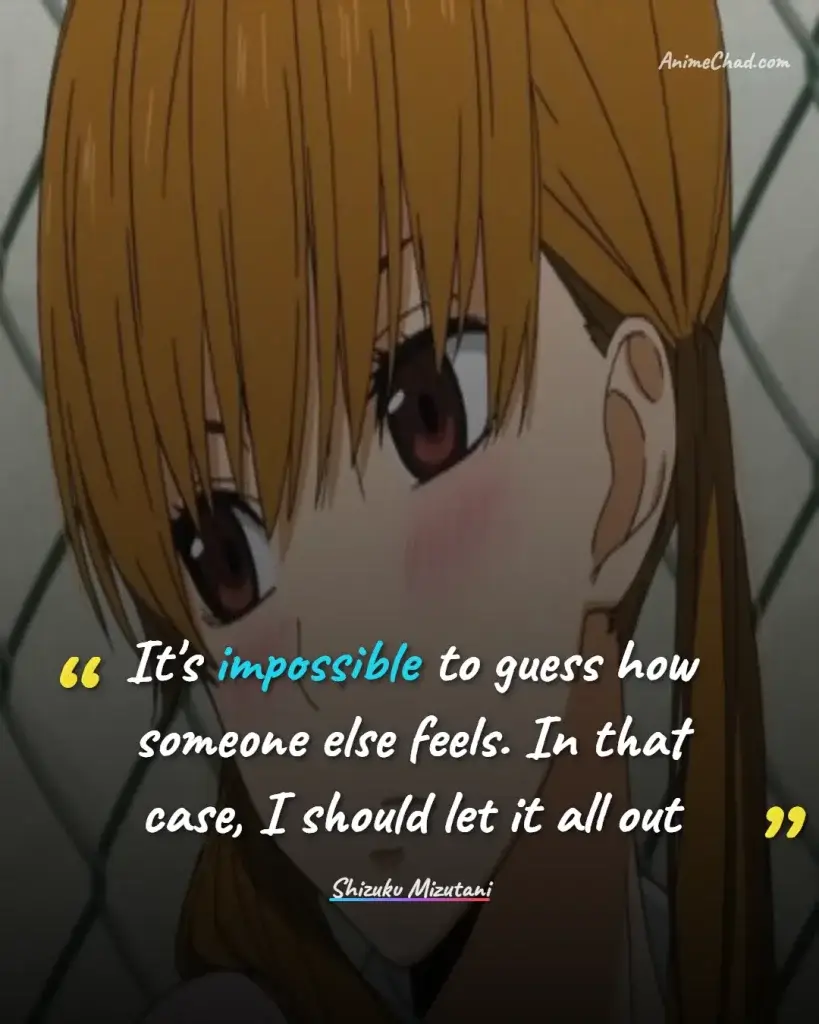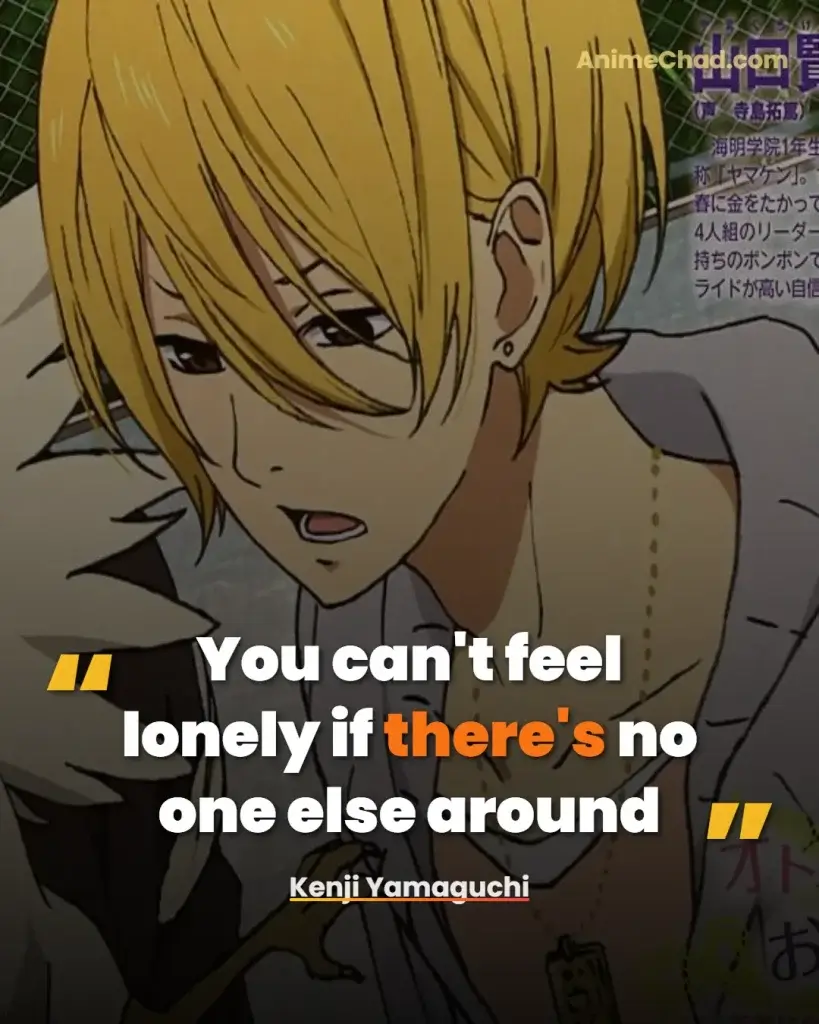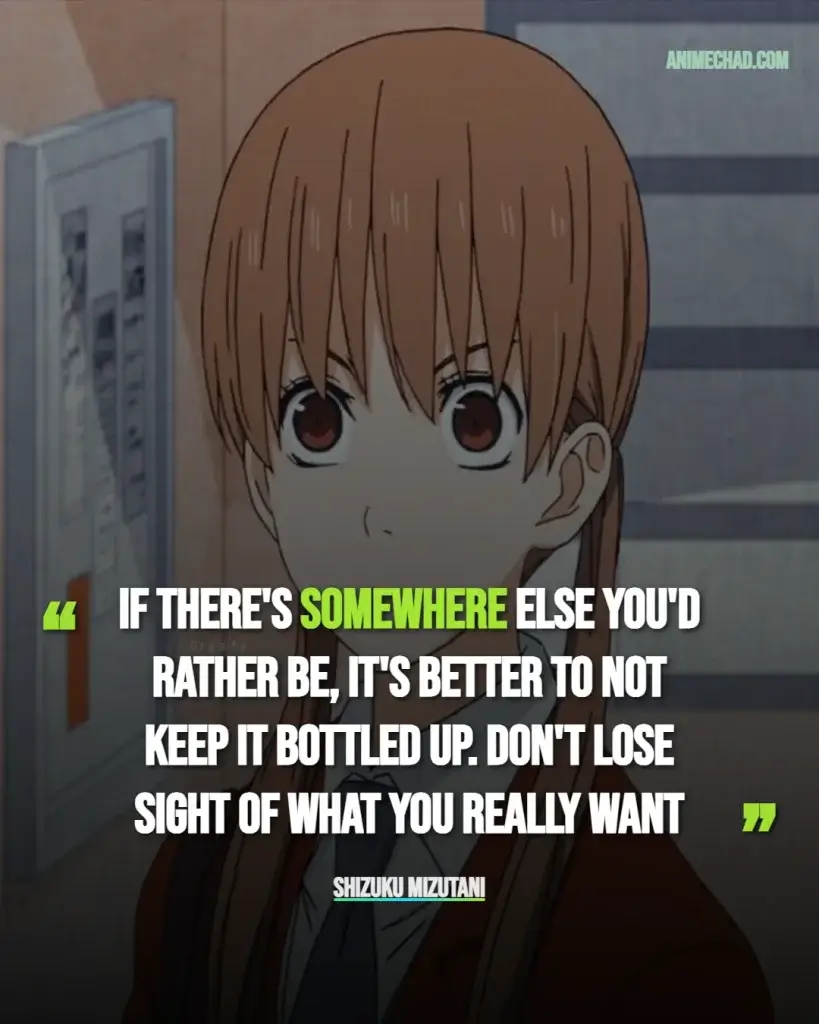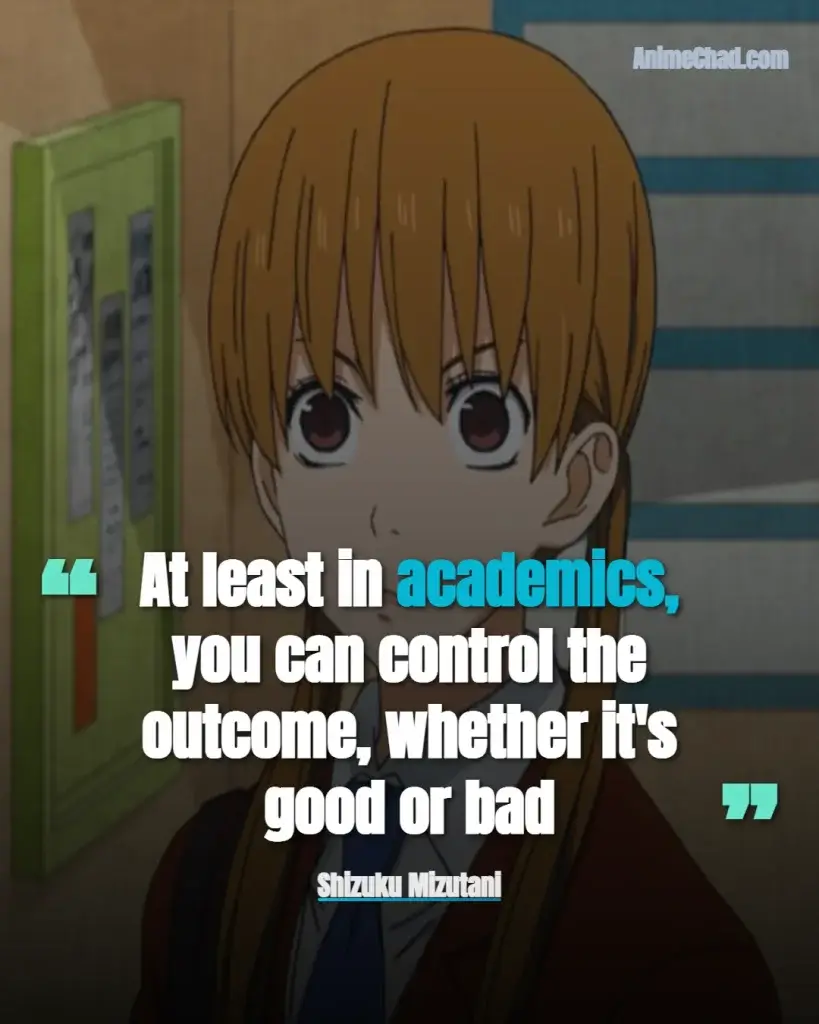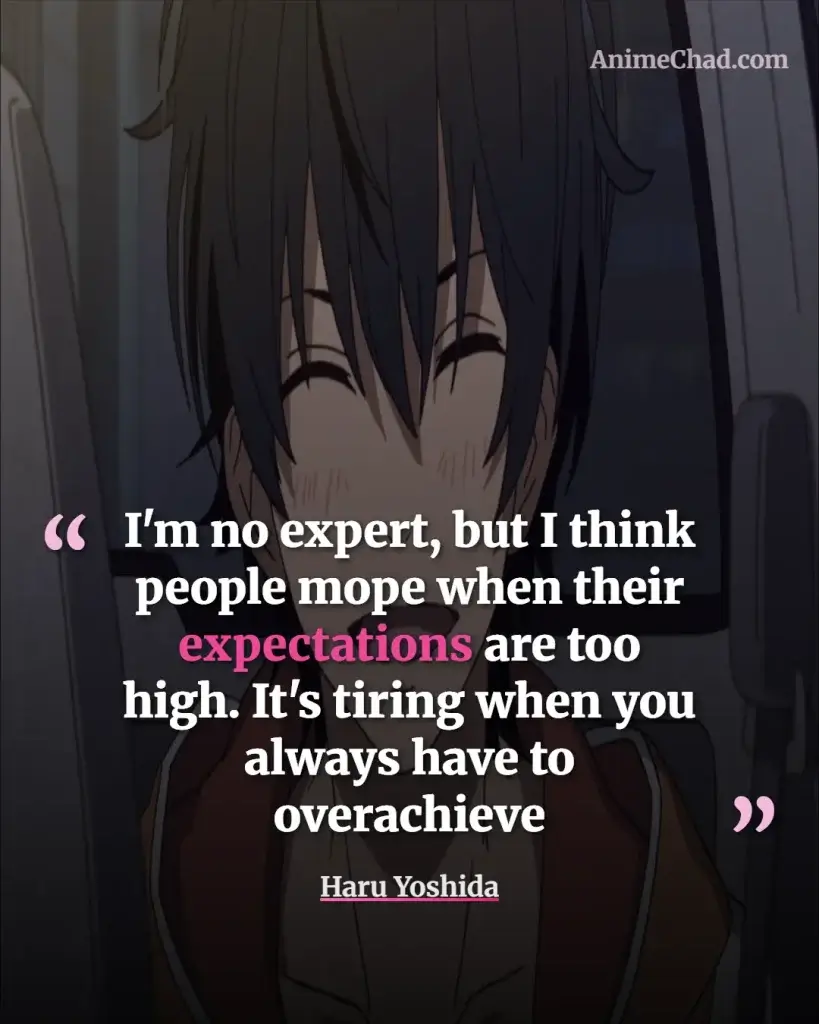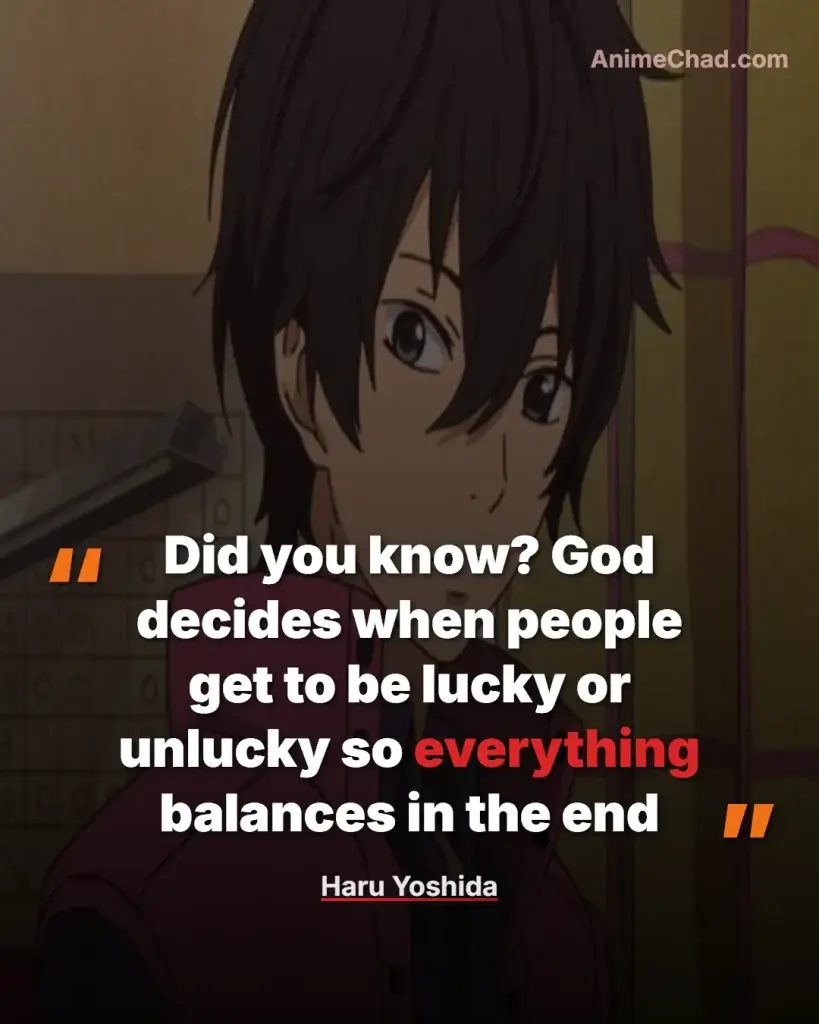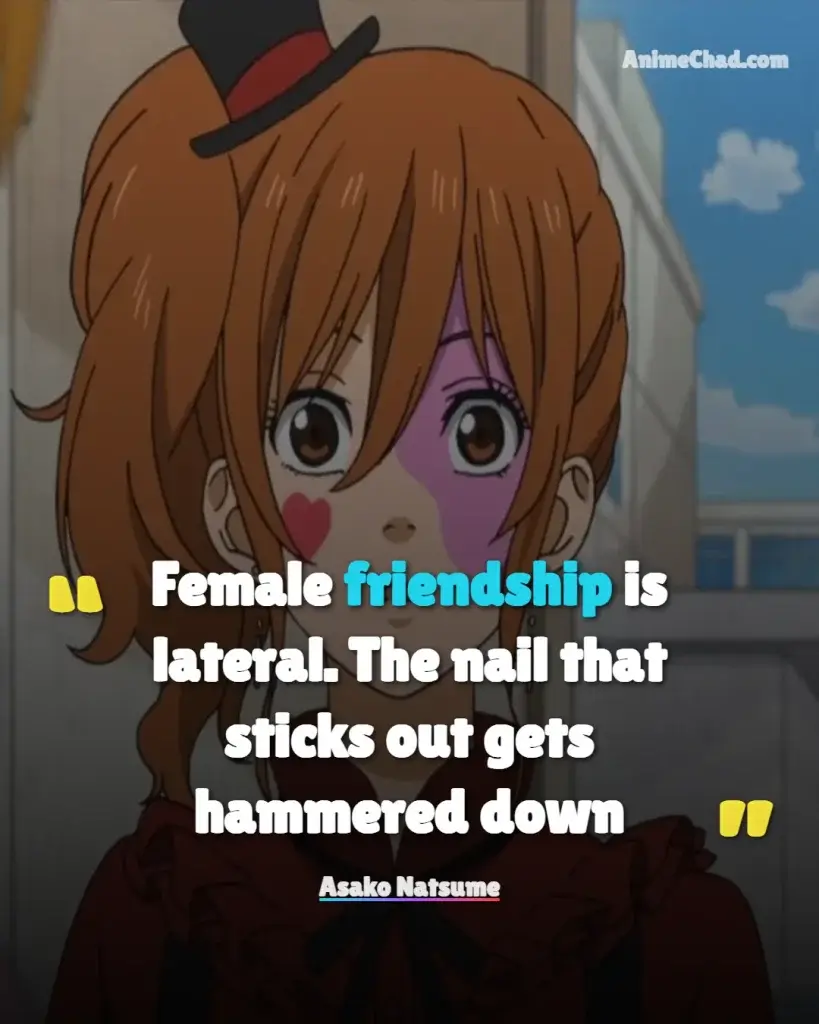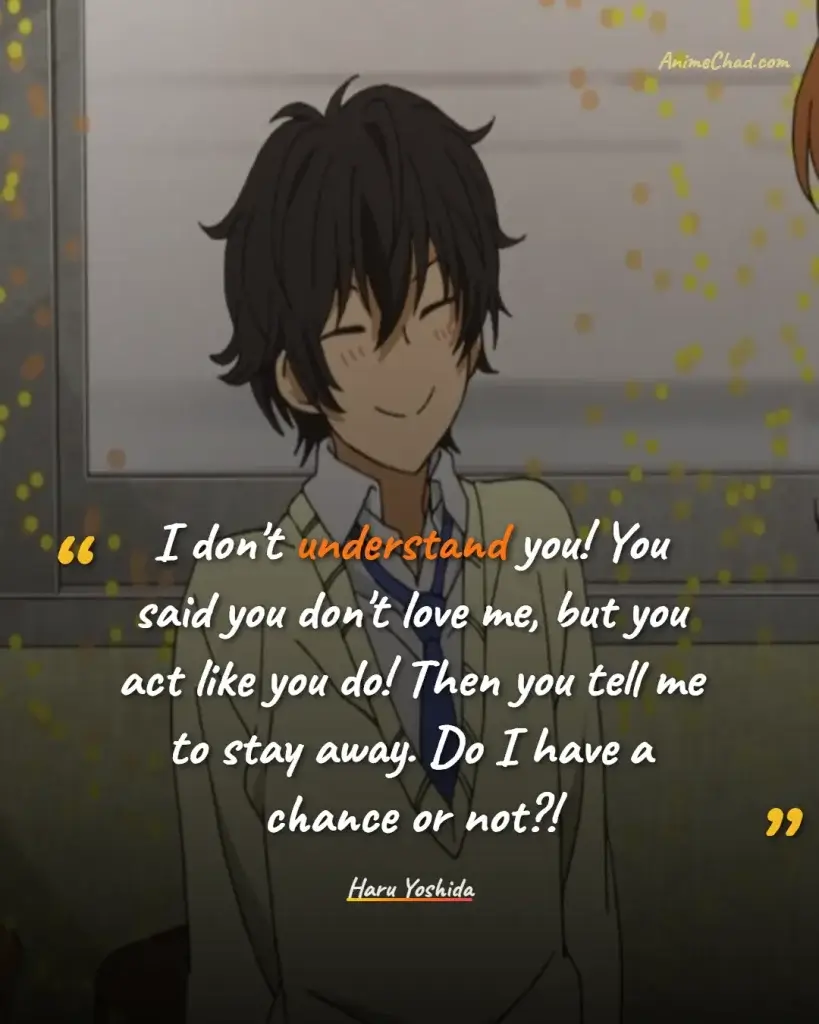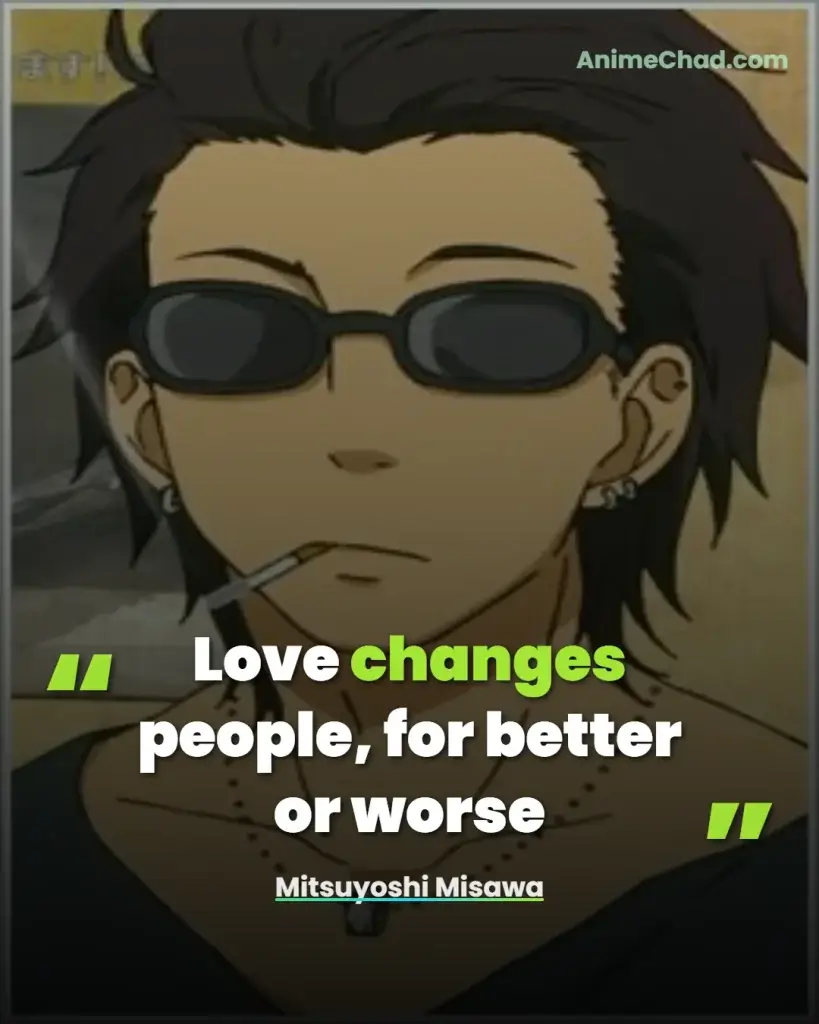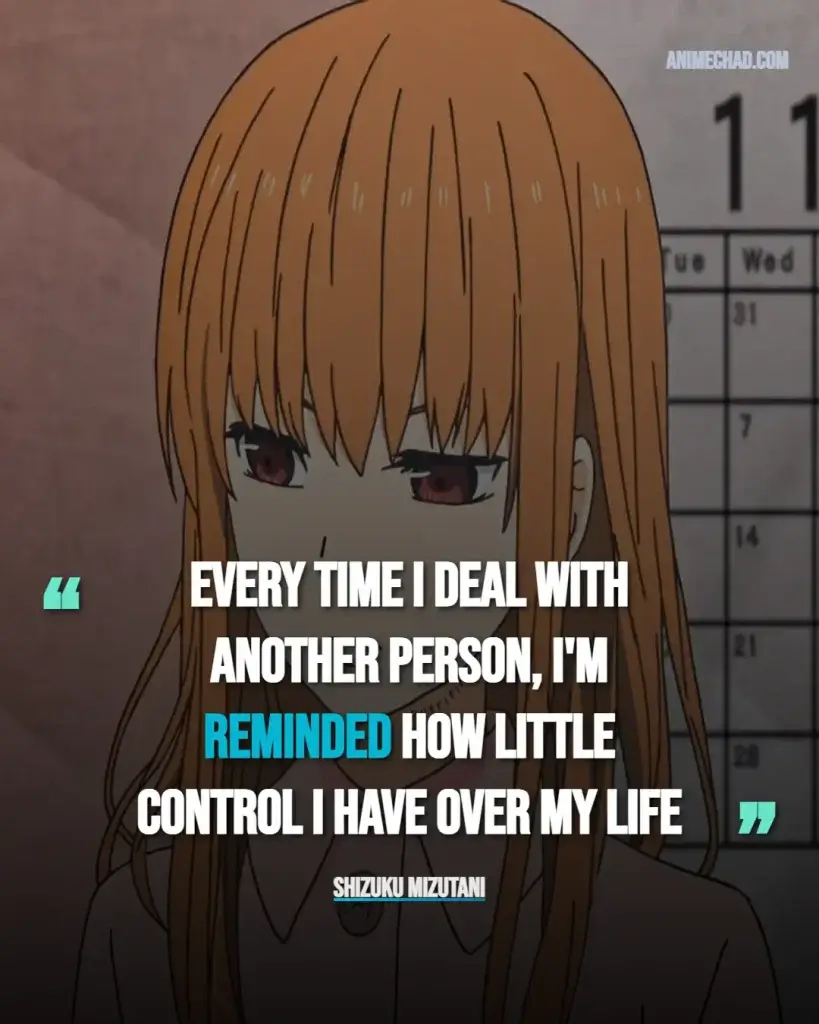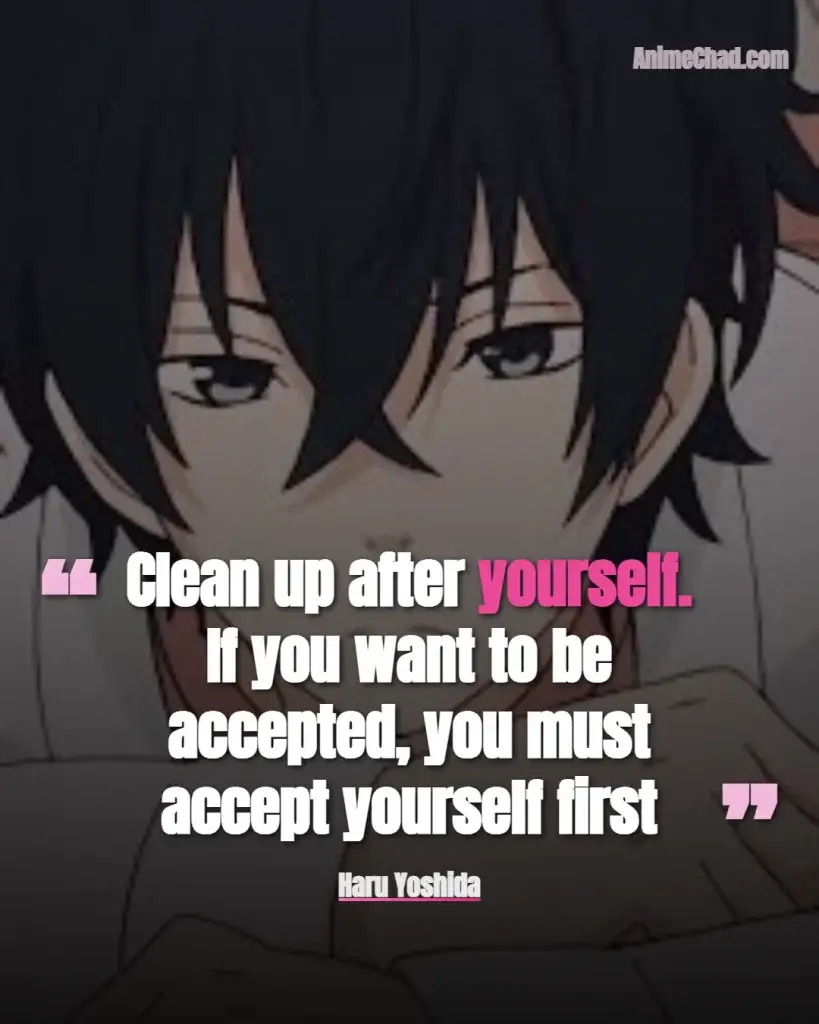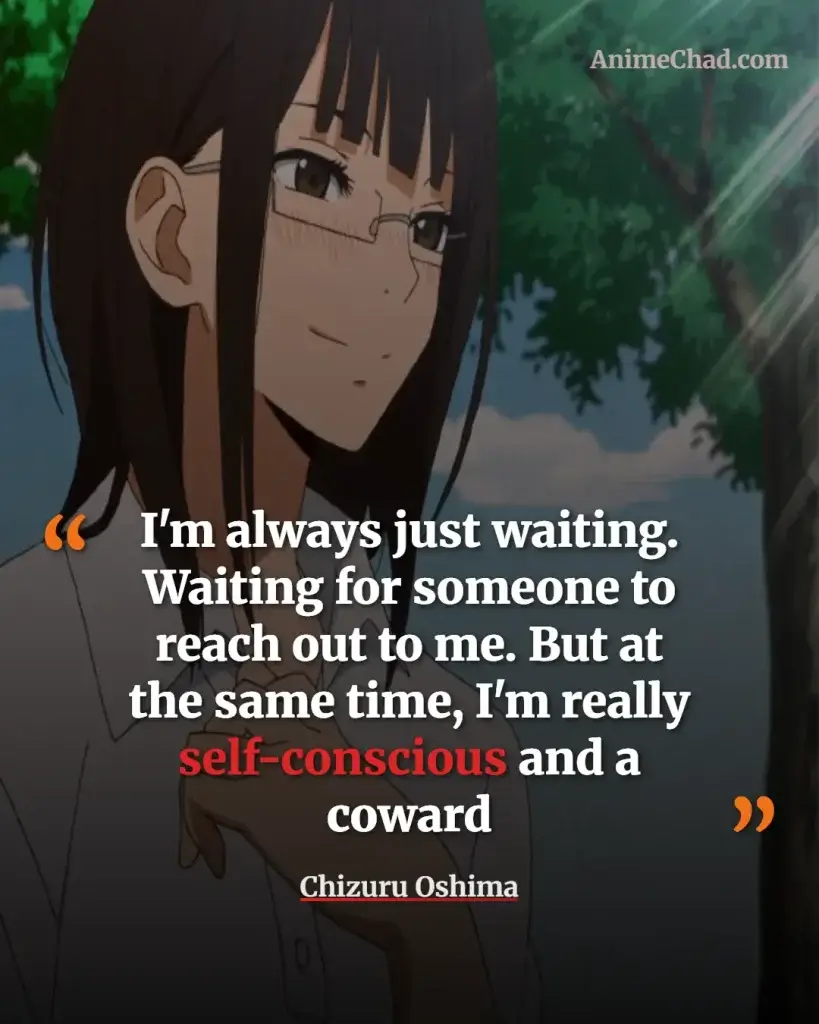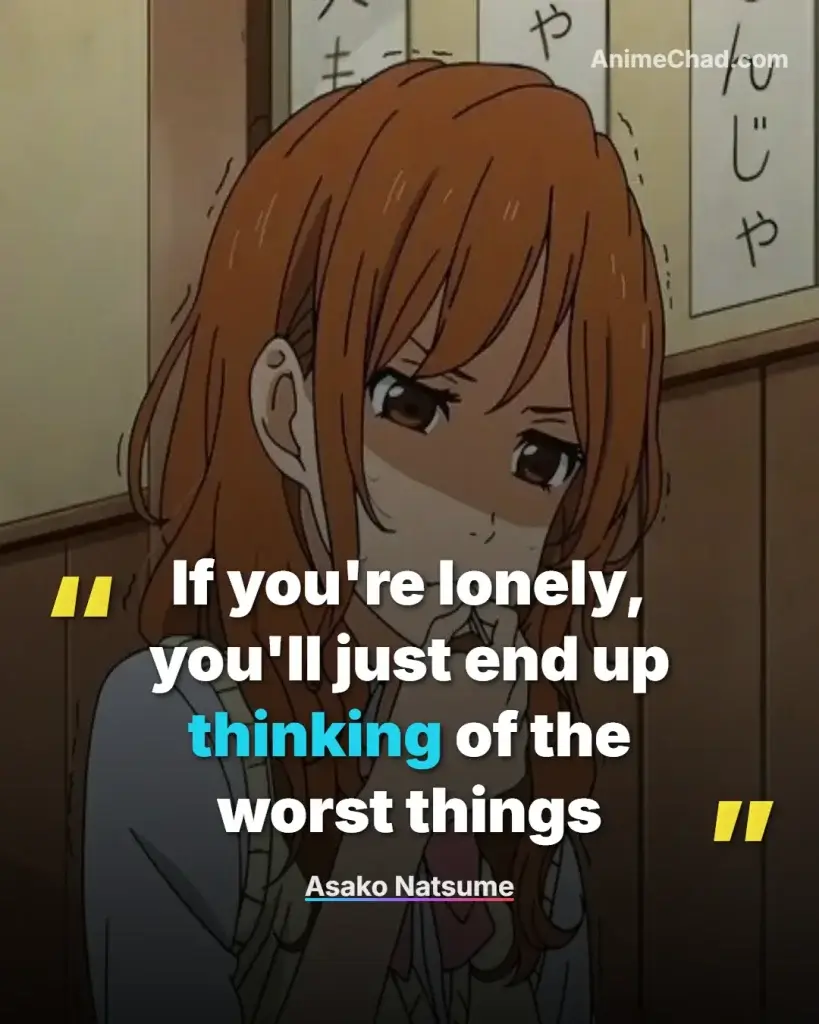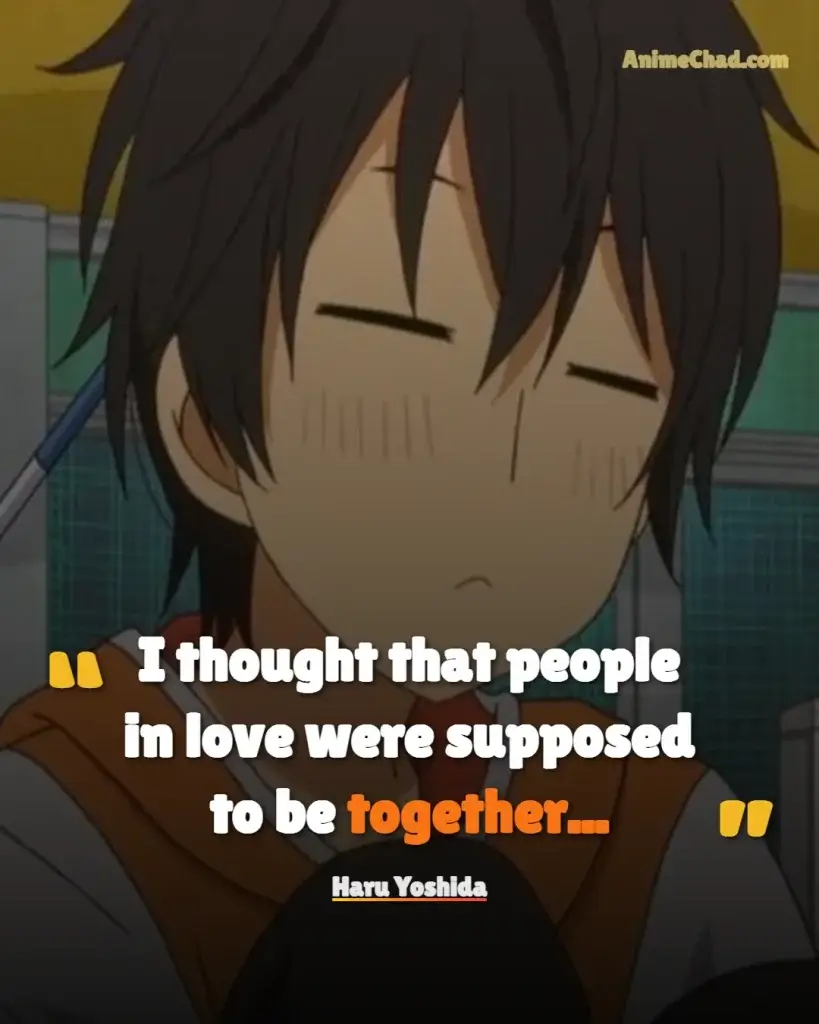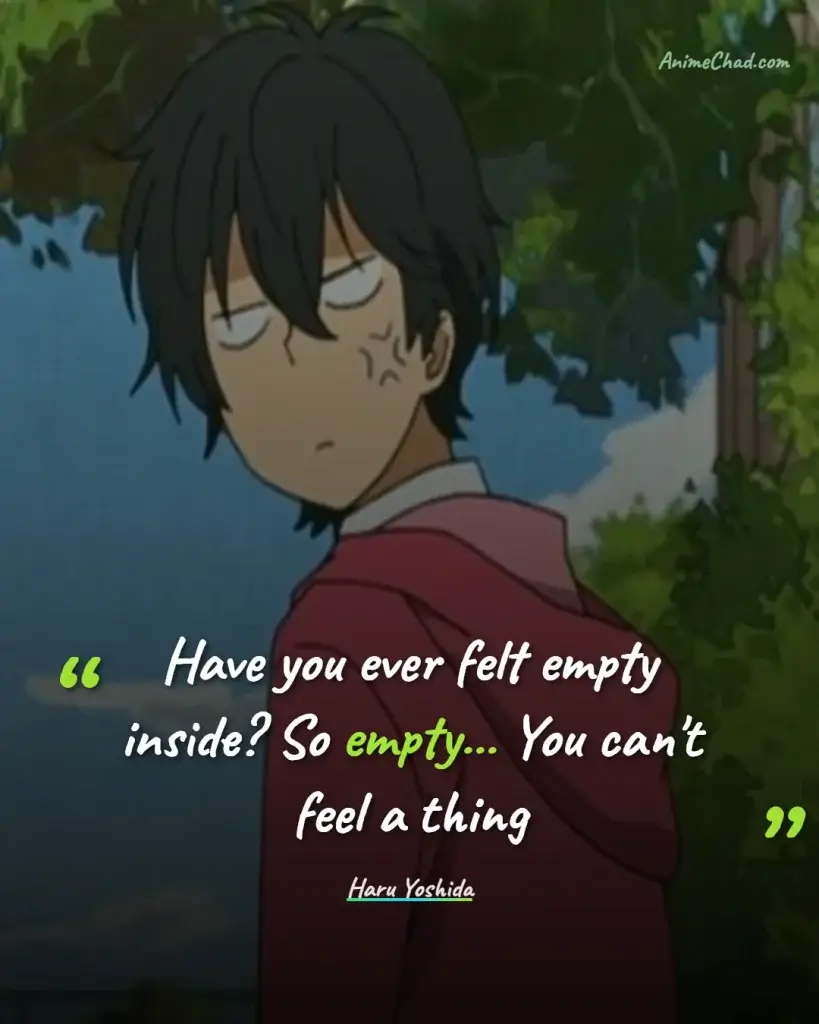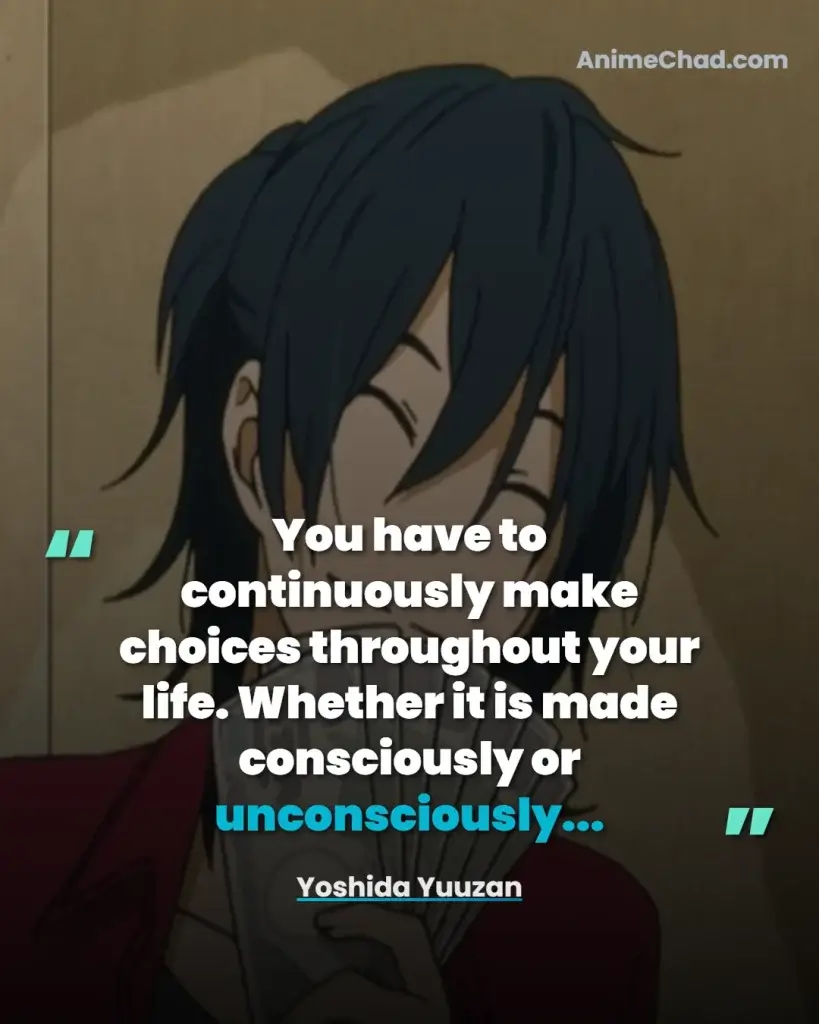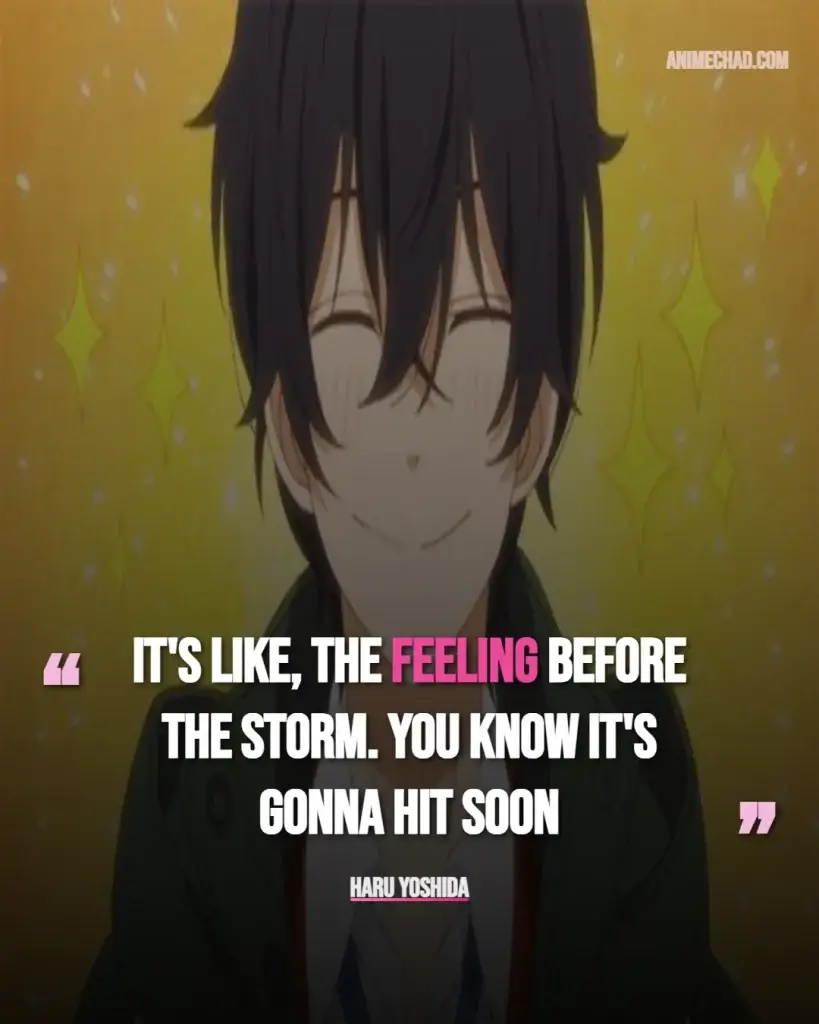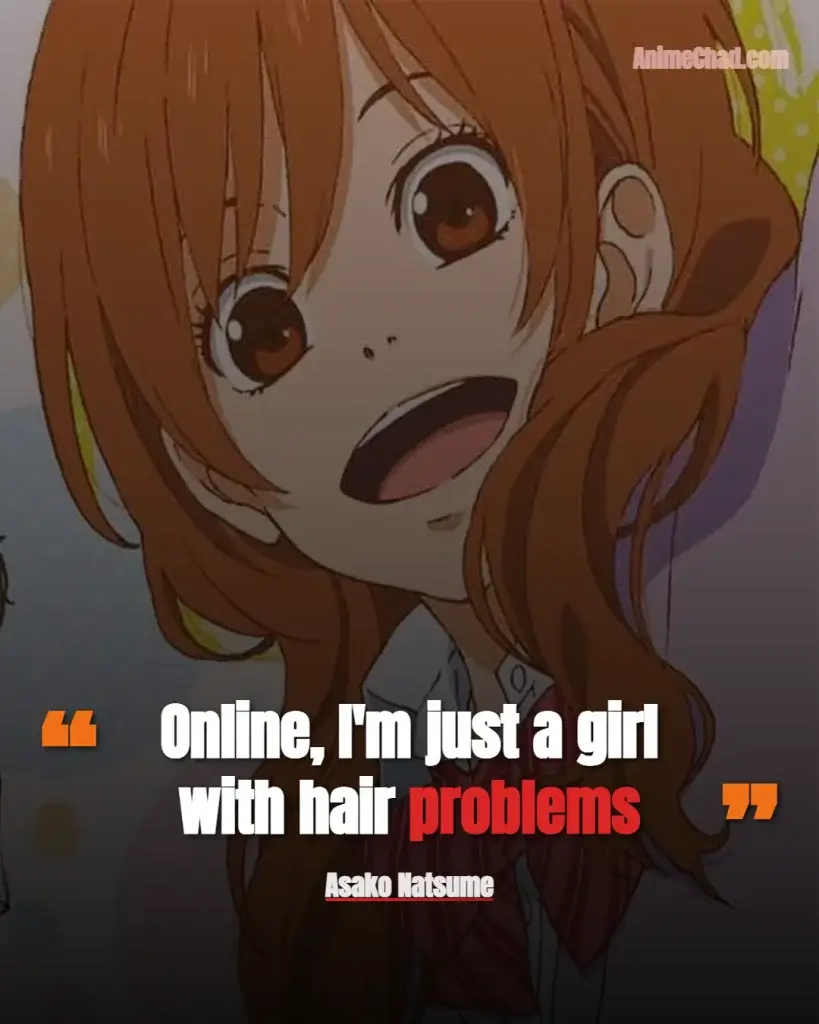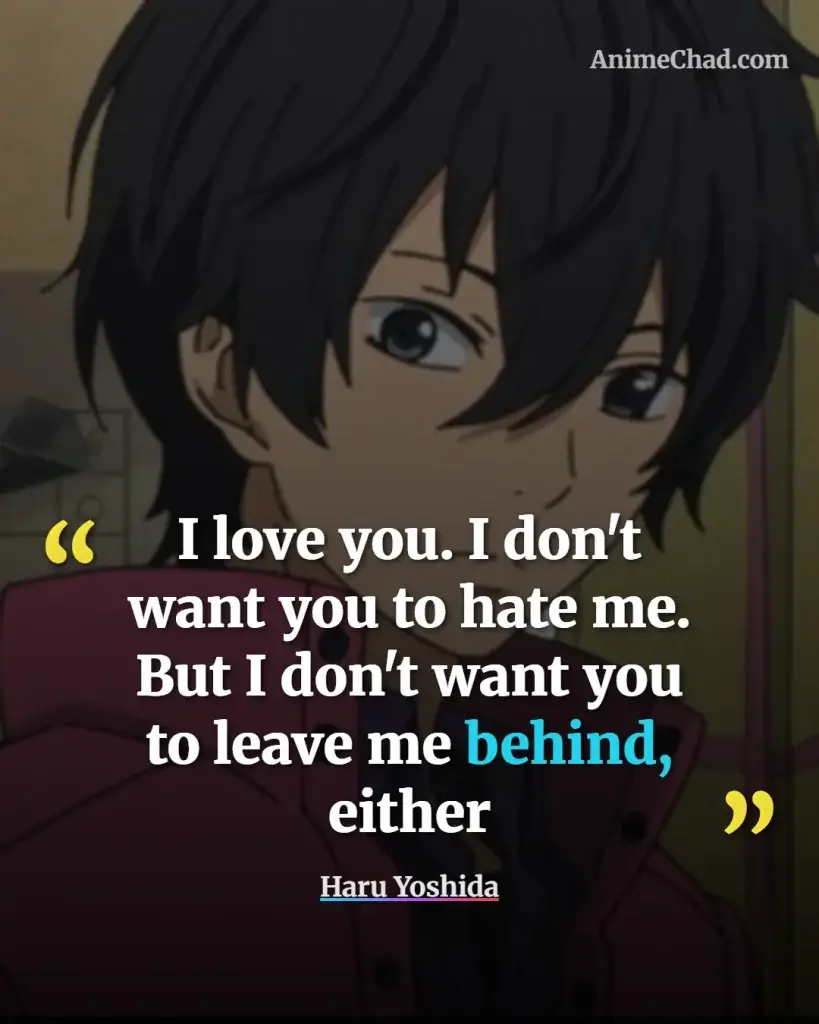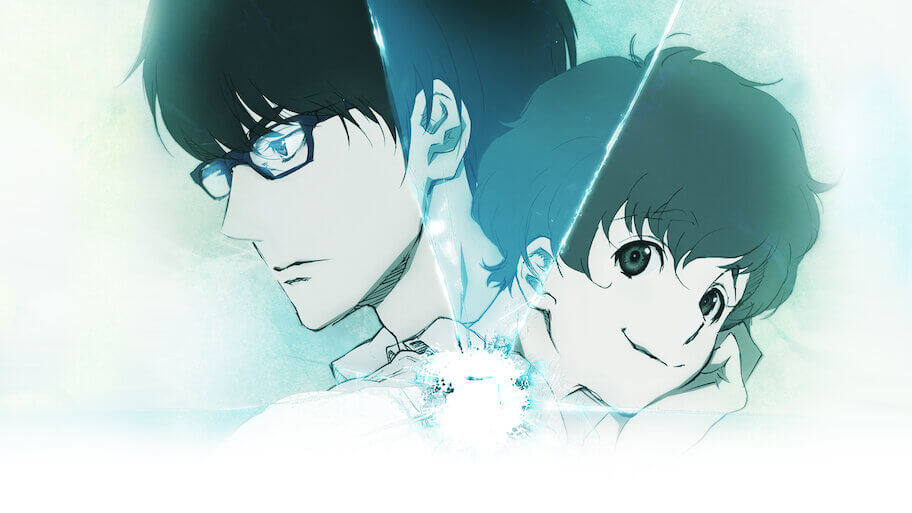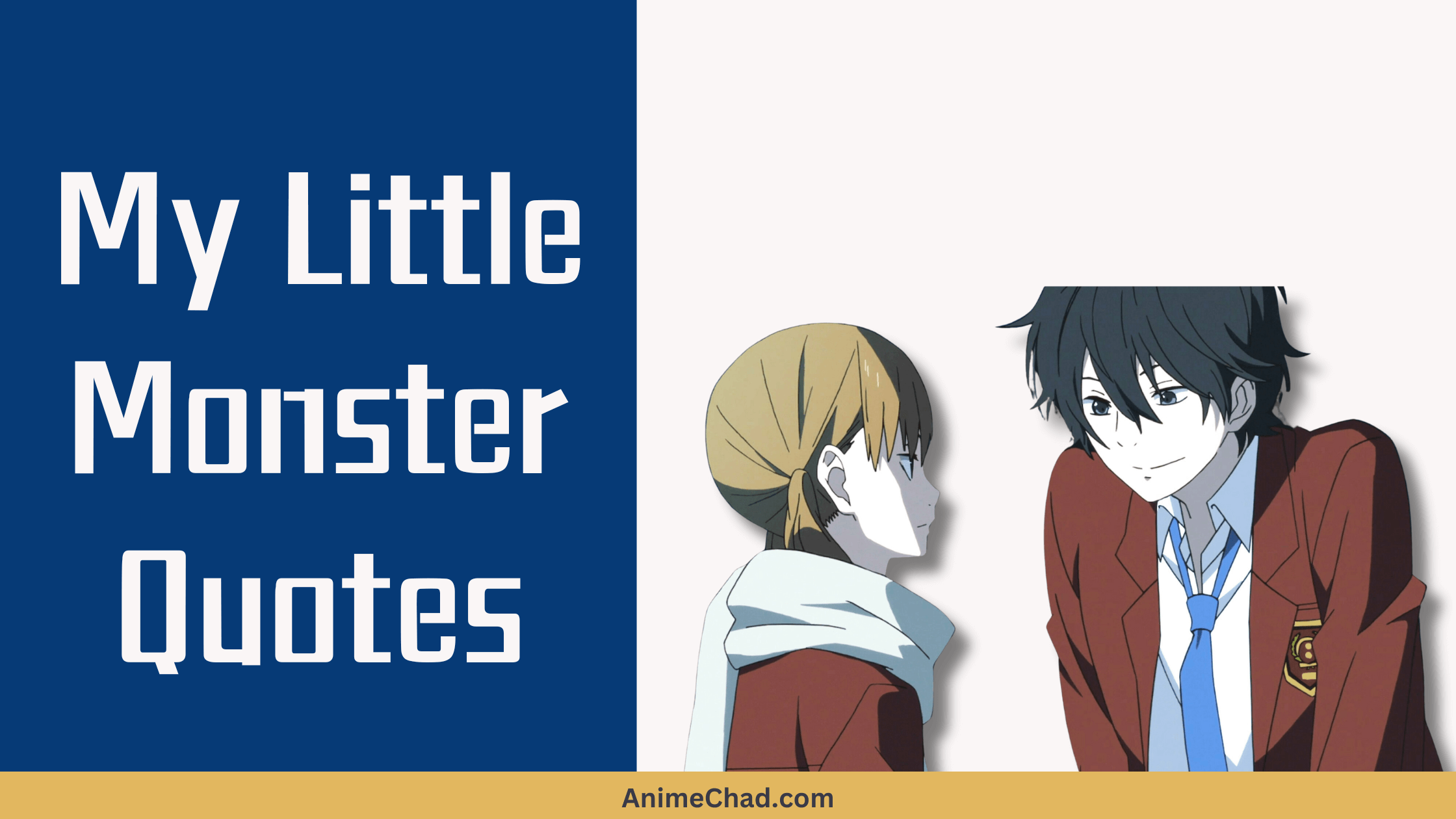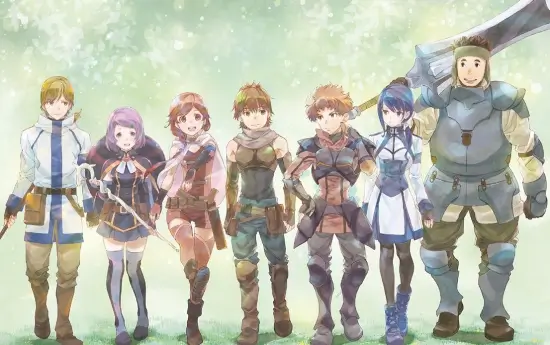My Little Monster, known as Tonari no Kaibutsu-kun, follows Shizuku Mizutani, a studious girl uninterested in relationships, and Haru Yoshida, a volatile delinquent who becomes her unlikely friend and love interest. The series delves into themes of emotional vulnerability, self-acceptance, and the transformative power of genuine connections amid personal insecurities.
This curated collection of 25 quotes highlights pivotal moments of growth, love, and introspection across the anime’s arcs, from early awkward encounters to deeper romantic and friendship developments.
I concluded that I was disappointed because I built up my expectations
Episode 1 (Encounter)
Shizuku Mizutani
Shizuku’s realization marks her initial vulnerability, shifting from emotional detachment to acknowledging feelings, tying into the theme of balancing academics with human bonds.
You can’t pick up water once it’s spilled. So handle it carefully
Episode 3 (Study Session)
Haru Yoshida
Haru’s advice reflects his aunt’s influence on self-acceptance; it underscores his growth in controlling impulsivity, emphasizing careful navigation of emotions in budding romance.
Once you’ve recognized your mistakes, it’s easy enough to correct them
Episode 2 (Suspension)
Shizuku Mizutani
Shizuku admits her relational errors post-Haru’s fight, highlighting her development from isolation to empathy, connecting to perseverance in understanding others’ pain.
Why am I asking for answers that will just depress me more?
Episode 5 (Confessions)
Chizuru Oshima
Chizuru’s self-doubt during her crush on Haru exposes unrequited love’s sting, showcasing female friendship themes and emotional honesty amid rivalries.
If you can’t give up one, learn to balance both at the same time. Why does it have to be all or nothing?
Episode 7 (Offline Meeting)
Kenji Yamaguchi
Kenji advises Shizuku on juggling studies and love, promoting maturity in relationships and reflecting the series’ core of integrating personal growth with connections.
It was so sad. The guy gets partway up before he’s dropped back down. God shouldn’t be so cruel
Episode 4 (Family Ties)
Haru Yoshida
Haru’s reflection on a bug’s futile climb mirrors his abandonment trauma, deepening character insight into resilience against cruelty, evoking peaceful introspection.
It’s impossible to guess how someone else feels. In that case, I should let it all out
Episode 6 (Rooftop)
Shizuku Mizutani
Shizuku vents frustration over Haru, marking her emotional release and development toward openness, linking to themes of vulnerability in love.
You can’t feel lonely if there’s no one else around
Episode 8 (Friendship Test)
Kenji Yamaguchi
Kenji’s quip during isolation reveals his hidden insecurities, balancing comedic tension with the series’ exploration of loneliness in group dynamics.
If there’s somewhere else you’d rather be, it’s better to not keep it bottled up. Don’t lose sight of what you really want
Episode 9 (Cram School)
Shizuku Mizutani
Shizuku confronts her priorities, showing growth in pursuing desires, tying into self-acceptance and the conflict between ambition and relationships.
At least in academics, you can control the outcome, whether it’s good or bad
Episode 1 (Encounter)
Shizuku Mizutani
Shizuku’s worldview clash with Haru initiates her arc, emphasizing control as a shield against emotional chaos, a key theme in her transformation.
I’m no expert, but I think people mope when their expectations are too high. It’s tiring when you always have to overachieve
Episode 10 (Party Chaos)
Haru Yoshida
Haru comforts Shizuku’s stress, displaying his empathetic evolution from hothead to supporter, highlighting balance in high-pressure arcs.
Did you know? God decides when people get to be lucky or unlucky so everything balances in the end
Episode 2 (Suspension)
Haru Yoshida
Haru’s philosophical musing post-fight reveals fatalism from his past, fostering his bond with Shizuku and themes of fate in unexpected meetings.
Female friendship is lateral. The nail that sticks out gets hammered down
Episode 7 (Offline Meeting)
Asako Natsume
Asako’s insight during girl talk critiques social conformity, aiding Shizuku’s relational growth and underscoring supportive friendships in peaceful moments.
I don’t understand you! You said you don’t love me, but you act like you do! Then you tell me to stay away. Do I have a chance or not?!
Episode 11 (Jealousy)
Haru Yoshida
Haru’s outburst exposes romantic insecurity, driving character depth in the confession arc and the theme of honest emotional expression
Love changes people, for better or worse
Episode 12 (Resolution)
Mitsuyoshi Misawa
Misawa’s observation on Haru-Shizuku’s dynamic affirms love’s transformative power, connecting to broader growth amid the series’ climax.
Every time I deal with another person, I’m reminded how little control I have over my life
Episode 3 (Study Session)
Shizuku Mizutani
Shizuku grapples with Haru’s influence, signifying her shift from independence to interdependence, central to vulnerability themes.
Clean up after yourself. If you want to be accepted, you must accept yourself first
Episode 5 (Confessions)
Haru Yoshida
Haru’s lesson to peers reflects his self-reform post-suspension, emphasizing acceptance as a path to belonging in friendship arcs.
I’m always just waiting. Waiting for someone to reach out to me. But at the same time, I’m really self-conscious and a coward
Episode 8 (Friendship Test)
Chizuru Oshima
Chizuru admits isolation fears, highlighting her development through Shizuku’s circle and themes of courage in seeking connections.
If you’re lonely, you’ll just end up thinking of the worst things
Episode 9 (Cram School)
Asako Natsume
Asako warns against solitude’s pitfalls, promoting outreach in her bond with Shizuku, evoking emotional weight in supportive dialogues.
I thought that people in love were supposed to be together…
Episode 6 (Rooftop)
Haru Yoshida
Haru’s naive plea during separation anxiety reveals his inexperience, deepening the romance arc’s impact on mutual reliance.
Have you ever felt empty inside? So empty… You can’t feel a thing
Episode 4 (Family Ties)
Haru Yoshida
Haru’s confession of inner void stems from abandonment, showcasing raw vulnerability and his healing through Shizuku’s presence.
You have to continuously make choices throughout your life. Whether it is made consciously or unconsciously…
Episode 10 (Party Chaos)
Yoshida Yuuzan
Yuuzan’s wisdom on decisions influences Haru, tying into themes of regret-free paths amid brotherly tensions in later arcs.
It’s like, the feeling before the storm. You know it’s gonna hit soon
Episode 11 (Jealousy)
Haru Yoshida
Haru’s tension before a fight captures impulsive urges, balancing action with introspection on controlling emotions for love.
Online, I’m just a girl with hair problems
Episode 7 (Offline Meeting)
Asako Natsume
Asako’s lighthearted reveal humanizes her online persona, fostering real bonds and character growth in digital-vs-reality themes.
I love you. I don’t want you to hate me. But I don’t want you to leave me behind, either
Episode 12 (Resolution)
Haru Yoshida
Haru’s raw plea cements his devotion, marking profound development from fear of loss to secure partnership in the finale.
